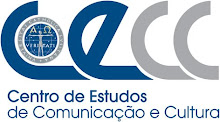Recent findings about human cognition have reshaped our understanding of culture. While the historical perspective in the studies of culture is concerned with the origins and differentiated development of human cultural products and social organizations, the cognitive view adds to these issues the interest in the biological and cognitive conditions that made it possible for such structures to emerge in the first place. Moreover, the cognitive perspective in the study of culture reveals the uniqueness of our cognitive architecture and its distinctive feature, namely that the human mind only completely unfolds in a synergy of minds. This feature of shared cognition is at the core of social and cultural organization. Human beings are cultural by nature and it is this condition that is on focus of a cognitive approach to culture, both in a diachronic perspective of the study of culture in human evolution, and the research of culture as a phenomenon in present times.
The CECC Conference on Cognition and Culture emerges in the context of this interdisciplinary research. It aims at promoting awareness about the cognitive foundation of culture across disciplinary fields of research, which traditionally focus on specific socio-cultural processes . This event intends to promote a reframing of the concept of culture, so that it encompasses not onlythe difference and variety of its products and manifestations, but also the cognitive conditions.
The guest speakers are distinguished researchers from different fields such as evolution psychology, aesthetics, cultural sciences, cognitive science, neurology and linguistics. They represent high rank institutions where studies on cognition and culture are presently being developed with different but compatible agendas.
The aim of hosting this event at the CECC Research Center for Communication and Culture is to broaden the span of culture studies within the research activities of this institution. The research line “Translating Europe across the ages” is committed to combine traditional cultural studies with research on the cognitive foundations of culture and cultural representations, which enable translation practices (here understood not only as semiotic transpositions but exchange of mental representations).
Moreover, by hosting this colloquium in Lisbon, the CECC aims at promoting international co-operation (particularly a closer and sustainable trans-Atlantic co-operation between the CECC in Lisbon and the CCC in Cleveland).
skip to main |
skip to sidebar

Research Center for Communication and Culture - Catholic University of Portugal, Lisbon - May 21st-22nd 2009

